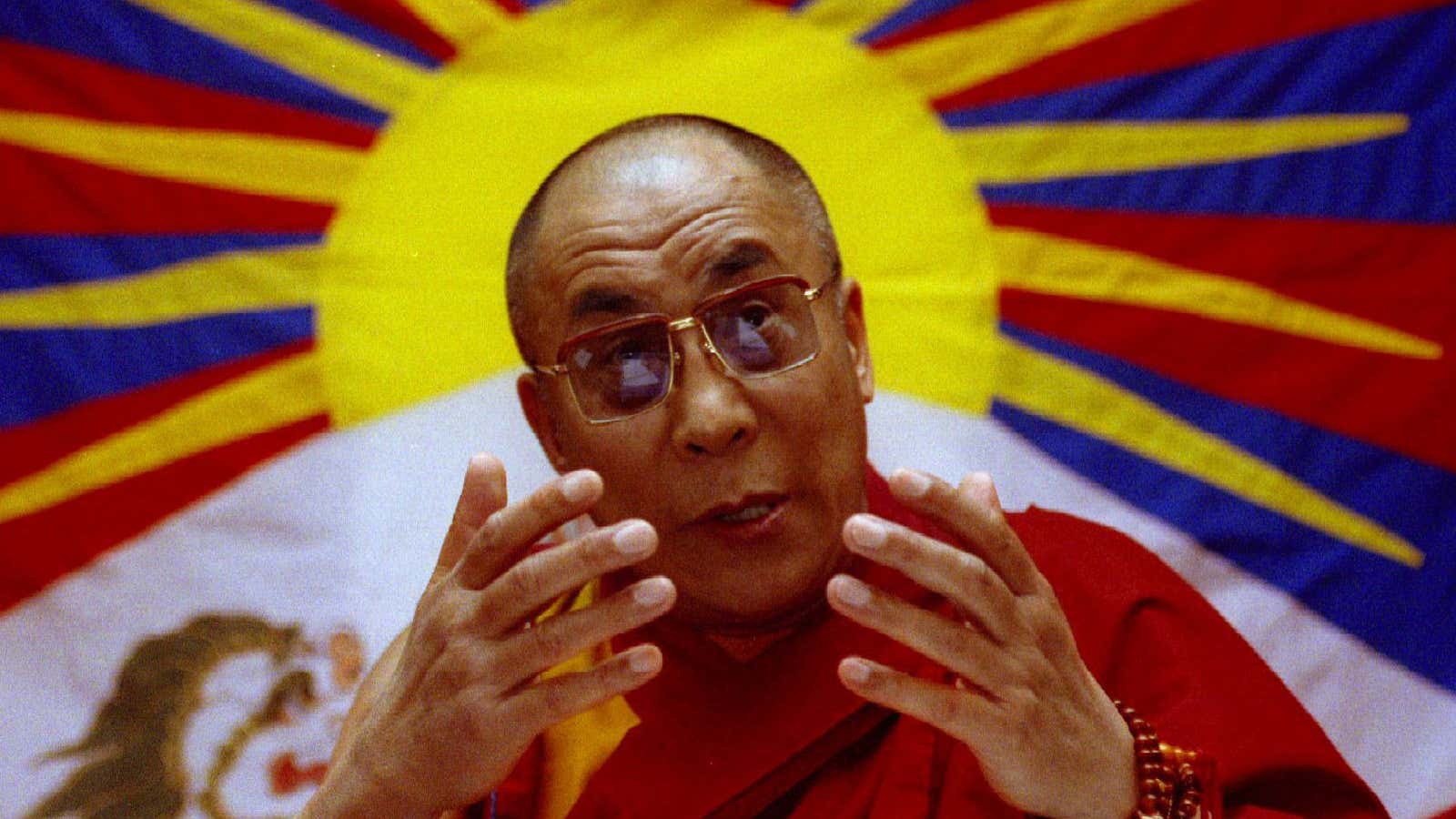Tibetans believe that when a Dalai Lama—their preeminent political and spiritual leader—dies, his spirit reincarnates in a newborn’s body, carrying on the lineage. But the 79-year-old current Dalai Lama, Tenzin Gyatso, has long said the line could end with him.
The Chinese government disagrees. The notionally atheistic Communist Party has decided it has authority over the Dalai Lama’s future lives.
“The reincarnation of the Dalai Lama has to be endorsed by the central government, not by any other sides, including the Dalai Lama himself,” said the religious affairs head of China’s political advisory body, on the sidelines of important government meetings yesterday.
This is the most publicly vocal Beijing has been on the issue of the Dalai Lama’s succession. The question is: why is the Chinese government so interested about an ancient religious rite?
Perhaps because the Dalai Lama directly challenges its authority when he says the Tibetan people should decide whether his lineage continues. Allowing Tibetans that kind of power would not suit the Chinese government at all.
Tibet holds great value for China. It has a vast supply of mineral wealth, including China’s biggest copper deposits. Its snows and glaciers are a critical water source in a country on the brink of a water crisis. It is also a strategic buffer against India. And any Tibetan challenge to Beijing’s authority could inspire similar movements in other restive regions.
As a result, the Chinese government has repeatedly tried to undermine and discredit the Dalai Lama’s authority, political and religious. In 1995, for instance, Beijing refused to accept his confirmation of the 11th Panchen Lama, another important Tibetan Buddhist figure. Instead, it allegedly kidnapping the boy and anointed its own candidate.
The Chinese government has long smeared the Dalai Lama, calling him a ”splittist” and “wolf in monk’s robes.” But lately it’s been taking something of a “softer” approach. The government officially declared Buddhism “an ancient Chinese religion.” More recently, there have been tantalizing suggestions that the Dalai Lama could be welcome to return to Tibet.
The Dalai Lama has given no indication that he’s interested in engaging with Beijing. As for Tibetans, in the past few years, scores have protested Chinese rule by setting themselves on fire.
Was yesterday’s pique due to frustration over the failure of Beijing’s charm offensive? That’s unclear. But it does harken back to a Chinese Communist Party tradition: ham-fisted bullying.




